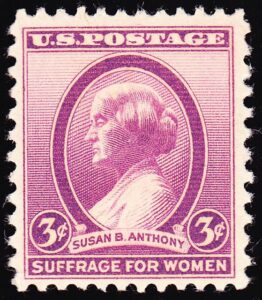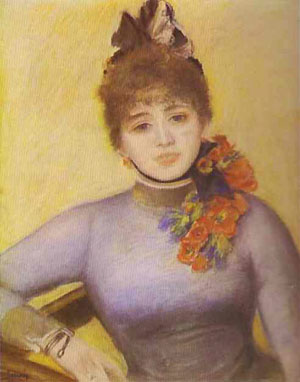
Part 2 MARK STATMAN: MEXICO AND THE POETRY OF GRIEF AND CELEBRATION
Part 2 of my interview with Mark Statman looks closely at Mark’s Latin American poetic influences, his life in Mexico and ends with an extract


A dialogue from Part One of my novel, Violet, with a piece at the end discussing how it was written.
After exchanging letters and talking on the phone, Beth and James meet in a West End restaurant. James has just drunk from a shared glass smeared with Beth’s lipstick.
Beth brought out her letters. “What you sent me,” she said simply. “All of them.”
“I wrote that much?”
She fingered carefully: “Twenty two pages.” To her, these said it all. They were what had brought her.
“Ah, but you wrote even more.”
“I’m not sure about that.”
“Definitely. I’ll count them when I get home.”
“You’ve kept them, then?”
“Of course.” He laughed, “And reread them. You’re a real writer.”
“Well, if that’s so, it’s because I find it easier…”
James nodded as she returned the letters to her handbag.
“I suppose it’s about words, and getting them on paper,” she added.
“Words, words, words,” he said lightly.
“Yes, that’s what I use,” she continued, meeting his eye.
“OK, so what would you do,” he asked, “if we couldn’t speak?”
She raised one eyebrow, “Sorry?”
“No words, only gestures.”
“I don’t quite follow.”
James repeated.
“No words at all?”
He nodded.
“You mean sign language?”
James gave a thumbs-up.
“I’m not really sure.”
“It’s a game people play. People like us.”
Beth considered, staring at her glass. “You mean you want to try?”
“Well, why not?”
“OK,” she said, “let’s have a go.”
James placed one hand palm-up on the table. He looked down and up. Raising the other hand he air-drew a circle around the room. A mischievous expression crossed his face. His fingers closed on an imaginary microphone and he mimed a chorus from a song. Breaking off, he looked both ways then waved to the gallery, jazz-handed. By now he was fresh-faced, beaming into camera. With a smile, he ended pointing to himself, to her, then down towards the lines in his palm. His eyes met hers and he nodded. When Beth made a noise, he switched his finger to his lips.
Beth sat forward. For a second she blanked, then narrowing her eyes, looked right, looked left, dropped one shoulder and raised her arm in a rounded gesture. Her face shaped surprise. One hand came back to press against her forehead, feigning thought. She held her pose before straightening, turning out her arms to a chicken-wing position. She pushed herself to the edge of her seat. Her mouth dropped open and she froze for a second, looking down. When she flapped her hands, James began laughing.

“That’s not allowed,” she said, straightening in her chair.
“But I didn’t speak.”
In reply she rolled her eyes. Folding her arms, she adopted a quizzical expression.
He shrugged, “OK, point taken. But does laughing count?”
“Yes.”
“You sure?”
“Absolutely.”
James laughed again, this time more softly. Pushing upright, he raised one hand to his jaw. Turning his wrist and starting at a corner, he zipped up his mouth. In the pause that followed the room came closer. Suddenly he leaned forward and touched her hand. “I’ve just thought,” he said. “We can do it another way.”
Beth’s eyebrows shot up.
“Listen,” he raised one finger, “you know this track?” On the speakers, a warm, darkly sinuous female voice had just begun. Behind it, a deep bass rhythm was beating up. He rose, offering his hand: “Dance?” The one word, said nicely, filled up the air.
Beth flushed, about to speak. When James placed a warning finger to his lips, she paused. His offer was a lift… she’d not imagined… it was all so unexpected – but also, perhaps, a proof of commitment. It meant he was with her.
He asked again.
Beth looked around quickly then rose. The one word went with her, repeated. Dance, dance, dance: it was quite enough for her.
Allowing him to lead, she passed between tables to a floor space at the back. Here they took up position. In the half-dark, moving slowly, absorbed in warmth and breath and the closeness of flesh, they began.
As they slow-danced together, Beth felt his hands closed about her waist. She was touched and held and at one with herself; it was as if she’d come alive. They shuffled in step, rocking side to side, and she was full-length in the mirror, trying out her moves. The words came back from a dance show – such a wonderful feeling – and an idea struck her. She’d watched and cheered and given her support, but always at a distance, from the outside, and not like this: suddenly she was at centre.
The music ran on. They turned and stepped, moving without thought. Their bodies, pressed close, were soft and loose and smoothly connected; it seemed they were afloat. And she knew, as she circled, what touch and excitement and bright lights and being on screen really meant…
We often see characters in books being put through extreme circumstances. In the literary novel the testing experiences are often single, significant and explored in detail, revealing what lies within. The focus is on life events we all share – birth, puberty, relationships, illness and death – rather than action-packed adventures with faceless heroes in far-flung places. The purpose is to probe human nature. Because it’s when our protagonists are at full stretch that we feel for them and can touch what’s inside. The moment of truth arrives, everything becomes clear and they show their true colours.
My number one testing experience when I was young was dating. Teenage girls scared me. Their looks made me blush and dry up. Part of me wanted sincerity and openness but another part wanted to talk that talk and impress my peers. I tried to carry it off, but inside I was confused and full of self-doubts. So my love affairs were imaginary and the fear of failure kept me apart, saving myself for ‘just the right girl’.
Now, although I’ve matured, I recognise and value those light-headed, first-date feelings. I gave them to Beth (though toned down to fit an adult) and allowed James his horseplay because I wanted to hold onto the spark that keeps them young and alive and surprising.
The dialogue in the restaurant moves quickly from the conversational to dream-talk and games. I wanted to jump in and find out what they're really like, so I used the selective nature of the novel to foreshorten time and work the changes. And to keep the novel grounded the speeches are short. In life we do speak at length, but on the page long speeches sound ‘meant’ as if the author had placed them there to tell us something or to draw attention to the artificial conventions of the novel.
A book simulates rather than imitates life.
My use of dialogue aims to integrate talk into a varied narrative flow. So I'll put in pointers to the voice tone or hidden feelings, I’ll switch from direct to reported speech and sometimes have a character speaking more than once, instead of taking turns.
I use ‘words only’ dialogue sparingly. As a habit, I think it encourages speed rather than reflection. It also leaves the meaning entirely to the reader. I prefer variety and a core of author intention – mediated by the reader - which might shift the tone and can offer insight. In my view, repeated stripped-back dialogues work best in plot-driven and action-led writing.
It took 4,500 words to tell the story of the date in the restaurant. I did move sections around and inserted as well as deleted. It’s not a ‘minimalist’, ‘stripped back’ or ‘dirty realist’ text. I use adjectives and adverbs, vary my style, want my characters to be alive and complex and aim to use the full range of the English language.
Leslie Tate
Signed copies of ‘Violet’ can be bought here.

ABOUT LESLIE TATE’S BOOKS:

Part 2 of my interview with Mark Statman looks closely at Mark’s Latin American poetic influences, his life in Mexico and ends with an extract

I interviewed international poet and translator Mark Statman about Volverse/Volver, his 14th published collection. Mark, who has won national arts awards, is Emeritus Professor of Literary

I interviewed Lisa Dart, finalist in the Grolier, Aesthetica and Troubadour Poetry Prizes and author of The Linguistics of Light (poems, Salt, 2008), Fathom (prose

I interviewed writer Julia Lee Barclay-Morton about her experience of autism. Julia began as an experimental dramatist in New York, moving to the UK to

I interviewed Gillean McDougall from Glasgow, who edited the collaborative projects Honest Error (on Charles Rennie Mackintosh and his wife Margaret Macdonald) and Writing the
| Cookie | Duration | Description |
|---|---|---|
| cookielawinfo-checkbox-analytics | 11 months | This cookie is set by GDPR Cookie Consent plugin. The cookie is used to store the user consent for the cookies in the category "Analytics". |
| cookielawinfo-checkbox-functional | 11 months | The cookie is set by GDPR cookie consent to record the user consent for the cookies in the category "Functional". |
| cookielawinfo-checkbox-necessary | 11 months | This cookie is set by GDPR Cookie Consent plugin. The cookies is used to store the user consent for the cookies in the category "Necessary". |
| cookielawinfo-checkbox-others | 11 months | This cookie is set by GDPR Cookie Consent plugin. The cookie is used to store the user consent for the cookies in the category "Other. |
| cookielawinfo-checkbox-performance | 11 months | This cookie is set by GDPR Cookie Consent plugin. The cookie is used to store the user consent for the cookies in the category "Performance". |
| viewed_cookie_policy | 11 months | The cookie is set by the GDPR Cookie Consent plugin and is used to store whether or not user has consented to the use of cookies. It does not store any personal data. |
2 responses
Keen to find out a bit more of your writing.
In my (humble!!) opinion, your writing in this excerpt goes at an almost melodious pace, like that of a poem.
I really enjoyed it.
Thank You, Louisa, you’re very kind. Can I suggest that you pre-order ‘Violet’? You can do it at https://leslietate.com/shop/violet/ . I should have a copy to send out to you before publication date (March 14th) as it’s going to the printers’ on Jan 31st. If you want to read something shorter while you’re waiting, you could try my trans memoir https://leslietate.com/shop/heavens-rage/ Ordering this way will give you signed copies, if you live in the UK. If you live abroad, you could tell me whether it’s Amazon UK or Amazon USA you use (or something other platform) and I can find you links… Thanks again for your comments! Leslie x